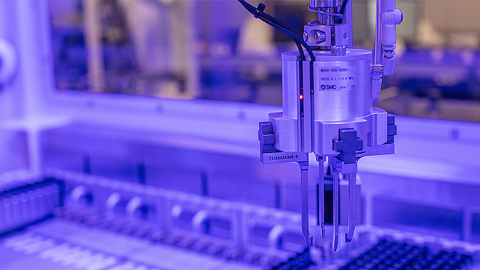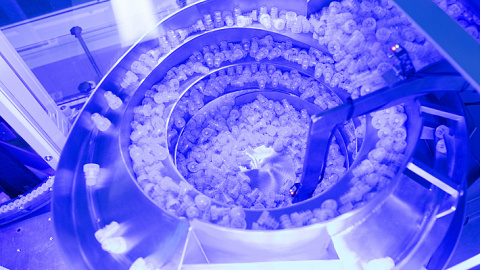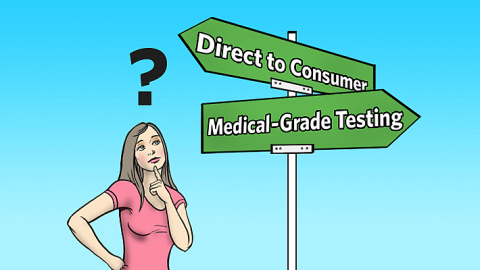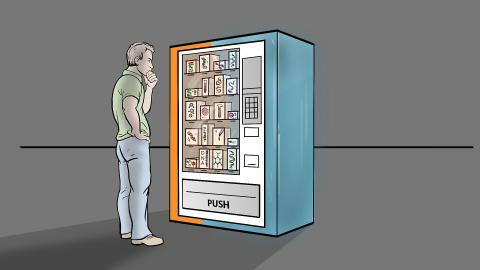- By Brian Helfand, MD, PhD
- Posted September 7, 2017
How Genetic Testing Can Benefit Your Urology Practice
An estimated 161,360 men will be diagnosed with prostate cancer in 2017; early detection is critical for successful treatment of this disease. We hope that Prostate Cancer Awareness Month will bring more men to their healthcare providers asking about prostate cancer screening or about their risk of developing this disease. Genetic testing for…
- By Taylor Leigh
- Posted August 15, 2017
Ambry Advances Understanding of Human Disease Through Epilepsy Gene Research
At Ambry, we believe working together is better, that sharing data is essential to finding answers faster. Our scientists embody these beliefs by collaborating with other talented researchers and physicians to understand human disease, most recently in epilepsy genetics. We are proud to have contributed to the clinical research reviewed…
- By Jessica Profato, MS, CGC
- Posted July 26, 2017
Why Paired Tumor/Germline Testing?
Germline genetic testing is used by many labs to evaluate a patient’s predisposition to hereditary cancer, and produces excellent results in its analysis of many genetic conditions. However, when germline testing is combined with tumor testing as a single paired test, it may yield even more helpful results in certain situations. Specifically,…
- By Carin Espenschied
- Posted June 29, 2017
What Happens When I Get My Genetic Test Results?
*Editor's Note: This post was originally shared on June 8th, 2016 and has been updated with current information. Learning the results of genetic testing can be a stressful experience for some, but it also has the potential to be empowering. If you are waiting for your genetic test results to come back or are considering…
- By Pearl Yee, M.D.
- Posted June 27, 2017
Physician Spotlight: Integrating Genetic Testing for Hereditary Cancer Into Your OBGYN Practice
Genetic testing for hereditary cancer has evolved significantly over the past several years. We are continually learning more information about genes that are associated with increased risks for various cancers; and there are many different genetic tests available that can help you learn more precise information about your patients’ cancer risks,…
- By Deepti Babu, MS, CGC
- Posted May 18, 2017
How are Direct-to-Consumer and Medical-Grade Genetic Tests Different?
As we find more ways to take charge of our health, genetic testing is becoming something that many consider and, in fact, has become easier to access than ever before. An appointment with a doctor or genetic counselor is no longer required to access genetic testing – for some types of genetic tests, it’s now possible to order a test kit online,…
- By Jonathan Rodis, MBA
- Posted May 11, 2017
Living with Marfan Syndrome: Part 2 of 2
It’s now 1990, and I’ve now had my life-saving heart surgery. After spending nearly a month in the hospital with health complications, I was finally able to go home. After another month at home trying to recover, I decided to head back to work to continue the job and career that I worked long and hard to achieve in executive management and…
- By Stephany Tandy-Connor, MS
- Posted May 4, 2017
Direct-to-Consumer Genetic Testing: Taking the Trend to the Next Level…Responsibly
Our DNA tells a story — it tells us who we are. With advancements in genetic testing and an increased awareness in personalized healthcare, interest in direct-to-consumer (DTC) testing is on the rise. DTC genetic testing companies have made limited genetic testing for the general population readily accessible to healthy individuals. However,…
- By Jacqueline Washle
- Posted May 4, 2017
Surfing with a Purpose: How the Mauli Ola Foundation Helps People with Cystic Fibrosis
Editor’s Note: In honor of Cystic Fibrosis Awareness Month, we asked Jacqueline Washle, Ambry’s Community Outreach Manager, to tell us about the Mauli Ola Foundation, which supports people with cystic fibrosis and other inherited conditions as part of its mission. Did you know that going to the beach is not only a fun pastime for…
- By Brittney Murray, MS, CGC
- Posted April 27, 2017
Using Technology to Help with your Genetic Heart Disease Risk
Technology is everywhere. It has become pervasive in our lives. Phones and computers became smaller, smaller, and then somehow bigger and bigger again as our phones become our new computers. Increasing technological advances are also propelling healthcare: newer techniques, smarter robotics, and new drugs. Within genetics, testing techniques…









